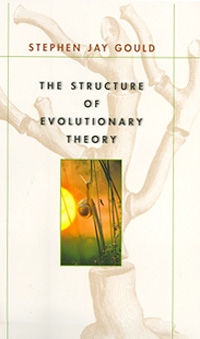A review of Stephen Jay Gould’s The Structure of Evolutionary Theory.
We live in the Age of Science. Scientism is our worldview, our mythic story about who we are, where we came from, and where we are going. As such, scientists are our preeminent storytellers, the mythmakers of our epoch. (continue reading…)
Comments Off on Darwin’s Duomo and Gould’s Pinnacle
An inquiry into the original meaning of the word “skeptic”
Poets often express deep insights into human nature with far less verbiage than scientists. Alexander Pope’s Essay on Man, for example, is filled with pithy observations on the dualistic tensions of the human condition:
Placed on this isthmus of a middle state,
A Being darkly wise, and rudely great:
With too much knowledge for the Sceptic side,
With too much weakness for the Stoic’s pride,
He hangs between; in doubt to act, or rest,
In doubt to deem himself a God, or Beast,
In doubt his mind or body to prefer;
Born but to die, and reasoning but to err.
Pope has packed a lot into this refrain, but the final clause is an important challenge to science: Is all our reasoning for naught, to end only in error? (continue reading…)
Comments Off on Skepticism as a Virtue
Fifty years ago Martin Gardner launched the modern skeptical movement. Unfortunately, much of what he wrote about is still current today
In 1950 Martin Gardner published an article in the Antioch Review entitled “The Hermit Scientist,” about what we would today call pseudoscientists. It was Gardner’s first publication of a skeptical nature (he was the math games columnist for Scientific American for more than a quarter of a century). In 1952 he expanded it into a book called In the Name of Science, with the descriptive subtitle “An entertaining survey of the high priests and cultists of science, past and present.” Published by Putnam, the book sold so poorly that it was quickly remaindered and lay dormant until 1957, when it was republished by Dover. It has come down to us as Fads and Fallacies in the Name of Science, which is still in print and is arguably the skeptic classic of the past half a century. (continue reading…)
read or write comments (3)
The advance of science, not the demotion of religion, will best counter the influence of creationism
In one of the most existentially penetrating statements ever made by a scientist, Richard Dawkins concluded that “the universe we observe has precisely the properties we should expect if there is, at bottom, no design, no purpose, no evil and no good, nothing but blind, pitiless indifference.”
Facing such a reality, perhaps we should not be surprised at the results of a 2001 Gallup poll confirming that 45 percent of Americans believe “God created human beings pretty much in their present form at one time within the last 10,000 years or so”; 37 percent prefer a blended belief that “human beings have developed over millions of years from less advanced forms of life, but God guided this process”; and a paltry 12 percent accept the standard scientific theory that “human beings have developed over millions of years from less advanced forms of life, but God had no part in this process.” (continue reading…)
read or write comments (2)
Any sufficiently advanced extraterrestrial intelligence is indistinguishable from God
As scientist extraordinaire and author of an empire of science-fiction books, Arthur C. Clarke is one of the farthest-seeing visionaries of our time. His pithy quotations tug harder than those of most futurists on our collective psyches for their insights into humanity and our unique place in the cosmos.
And none do so more than his famous Third Law: “Any sufficiently advanced technology is indistinguishable from magic.”
This observation stimulated me to think about the impact the discovery of an extraterrestrial intelligence (ETI) would have on science and religion. To that end, I would like to immodestly propose Shermer’s Last Law (I don’t believe in naming laws after oneself, so as the good book says, the last shall be first and the first shall be last): “Any sufficiently advanced ETI is indistinguishable from God.” (continue reading…)
read or write comments (3)






